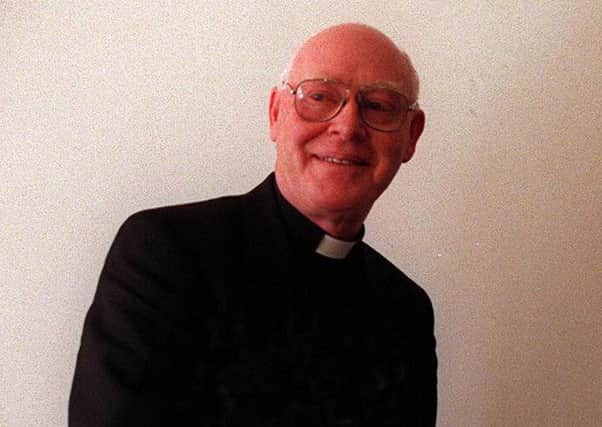Obituary: Rt Rev John Mone, bishop who hit headlines protesting against internment of children at Dungavel


The Rt Rev John Mone, Bishop Emeritus of Paisley, was never one to shrink from demonstrating faith. He put practical care for the poor and dispossessed to the forefront of his ministry, and hit UK headlines when he robustly protested at the internment of children in the family unit of the Home Office detention centre at Dungavel in Lanarkshire, taking his protest to the Home Secretary himself.
In calling for closure of the family unit at Dungavel, he said: “I think it shames all of us in Scotland”, adding that children held in the centre were “very very depressed” under “prison conditions”.
Advertisement
Hide AdAdvertisement
Hide AdThe bishop, president of the Justice and Peace Commission of the Roman Catholic church, demanded and gained a meeting with then Home Secretary David Blunkett in London, not only handing over a petition and demanding the immediate closure of the family unit at Dungavel, but challenging the Home Secretary on why so little had happened to alleviate the plight of children and families there.
Bishop Mone argued that Dungavel and similar places throughout the UK breached the UN Convention on Human Rights of the Child because youngsters were being kept in prison conditions. He said he would be calling for the closure of all family units in UK detention centres.
In a meeting with Mr Blunkett described as “robust”, Bishop Mone said afterwards: “I had to make Mr Blunkett aware of the psychological and emotional effects that living in a prison had on children”.
One of his arguments centred on the Ay family, Kurds from Turkey, detained in Dungavel for more than a year. Partly through Bishop Mone’s persistence, the Ays gained asylum in Germany.
There was never any doubting John Mone’s practical compassion; it characterised the man, right back to days of apartheid in South Africa – when, typically of him, he had visited that country to find out conditions for himself. He found the regime “disgusting”, and strongly criticised Scottish rugby for sending a team there.
Drawing on what he had himself seen of apparent efforts of racial integration within sport, he reported: “From what I saw, integration is severely limited. Sporting facilities for blacks are much inferior to those of whites”.
Practicality of Christian care formed a centrepiece of his faith. Finding himself unable to communicate with a group of profoundly deaf a decade ago, he undertook a course in basic sign language, achieving basic accreditation.
The outspokenness of Bishop Mone lay in contrast to his readiness to smile and share laughter, aspects that proved hallmarks of his life and his ministry. He moved easily among parishioners, politicians and people of all faiths – or none at all. If he didn’t possess a natural knack in socialising, he certainly proved himself as someone who picked up the ability, and who turned it into a minor art form.
Advertisement
Hide AdAdvertisement
Hide AdJohn Aloysius Mone spent his life within west central Scotland. Born in the south side of Glasgow, in the busy district of Crosshill, the fourth of the six children of Arthur Mone and Elizabeth Dunn, he was educated at nearby Holyrood Secondary School, where he determined on the priesthood. He studied at the Seminary of St Sulpice, at Issy-les-Moulineaux and then at the Catholic Institute in Paris, becoming ordained in 1952 at age 23, he served until he was 46 at St Ninian’s in Knightswood, Glasgow, before a series of moves that took him as parish priest to Tollcross, and then in 1984 as Auxiliary Bishop in Glasgow under Archbishop Thomas Winning.
He received the full mitre in 1988 as Bishop of Paisley, a post he held until enforced retirement at 75 in 2004.
Demands on his pastoral skills saw him constantly called upon, and he notably presided over Scottish Catholic Marriage Care as well as chairing the Scottish Catholic International Aid Fund – among a minor string of other church-founded responsibilities.
Bishop Mone was described as “a thoroughly ecumenical churchman who won friends everywhere” by Duncan Paisley of Westerlea, chieftain of the Paisley family worldwide. John Mone’s interest in family allied to his title as Bishop of Paisley saw him invited by Westerlea to become an honorary member of the Paisley Family Society in 1991, being appointed honorary vice-president the following year. In 2006, he was made president of the Society, an office he greatly enjoyed, adding a stole and waistcoat in Paisley tartan to his clerical garb at Society events.
In 2009, at the Great Clan Gathering in Holyrood Park, Edinburgh, he delightedly held court at the Paisley tent during the event. The motto of his coat-of-arms summed up his character – “To Lead In Love”.
GORDON CASELY